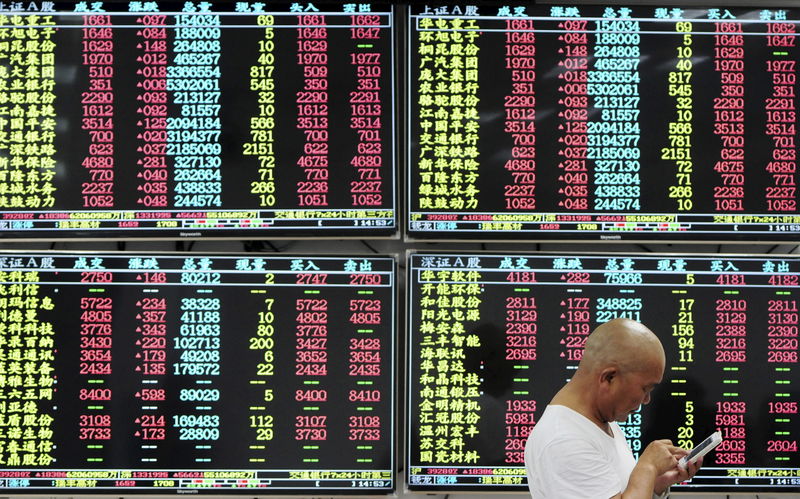By Nathaniel Taplin
SHANGHAI (Reuters) - China has been pushing local governments out of shadow banking and into the sunlight with a 2.6 trillion yuan (£260 billion) bond programme, all in the name of financial reform.
Investors, though, seem to like it just fine in the shadows - and Beijing seems to be quietly encouraging them.
Investors are showing declining interest in the fledgling municipal bond market - one debt auction was undersubscribed this month for the first time in 2015 - and are instead warming to the idea of lending to governments through a back door.
They are buying up debt issued by local government financing vehicles (LGFVs), a shady funding channel that until recently was being phased out by Beijing in favour of the greater transparency and accountability of municipal bonds.
Investor interest in LGFV debt, which does not appear on local governments' books, follows Beijing's decision in May to reverse restrictions it had imposed only last year on these vehicles as part of a wider crackdown on shadow financing.
In reviving LGFVs, the central government has conceded that the muni bond market alone cannot funnel cash quickly enough into provincial projects to help buoy the wider economy.
LGFVs may be shady but they are smaller and more nimble than the provincial governments operating in the muni market. Each province has many LGFVs, which raise funds for specific projects without the administrative burden of a muni bond.
For investors, the allure of LGFVs is higher yields and the belief that they, like munis, come with an implicit government guarantee.
"When they let LGFVs tap the bond markets and bank financing again, it was an admission that their (Beijing's) fiscal reform objectives had been too aggressive," said Oliver Barron, head of research at China-focused investment bank NSBO in Beijing.
Beijing has been expanding the municipal bond market at breathtaking speed, approving 2.6 trillion yuan in issues for 2015, more than six times the amount issued last year. About 2 trillion yuan raised from this year's muni bond issues will be used to refinance existing local government debts.
Yields on muni bonds have risen by about 30 basis points since late May. On Aug. 7, after news of the subscription shortfall on one auction, yields on bonds due 2018 from Ningxia and Jiangsu provinces jumped nearly 15 basis points.
That is despite stronger overall demand for fixed income in China, given that recent turmoil in local stock markets has led investors to park more money in the relative safety of bonds.
In contrast to the muni bond market, LGFV yields have fallen even as these vehicles ramp up issuance. Monthly LGFV debt issues quadrupled to 80 billion yuan between February and July, says Nicholas Zhu, senior analyst at Moody's Investors Service.
For local governments, though, there is still a price to pay for using the fast lane of an LGFV.
Yields on high-rated LGFV debt may have fallen, but they still trade at around 200-250 basis points above sovereign bonds compared with a spread of less than 50 points for munis.

Concerns are also resurfacing about local governments taking on too much debt, using the shadows to fund commercially dubious projects of the kind that already litter China, such as empty roads, apartment towers and near-deserted amusement parks.